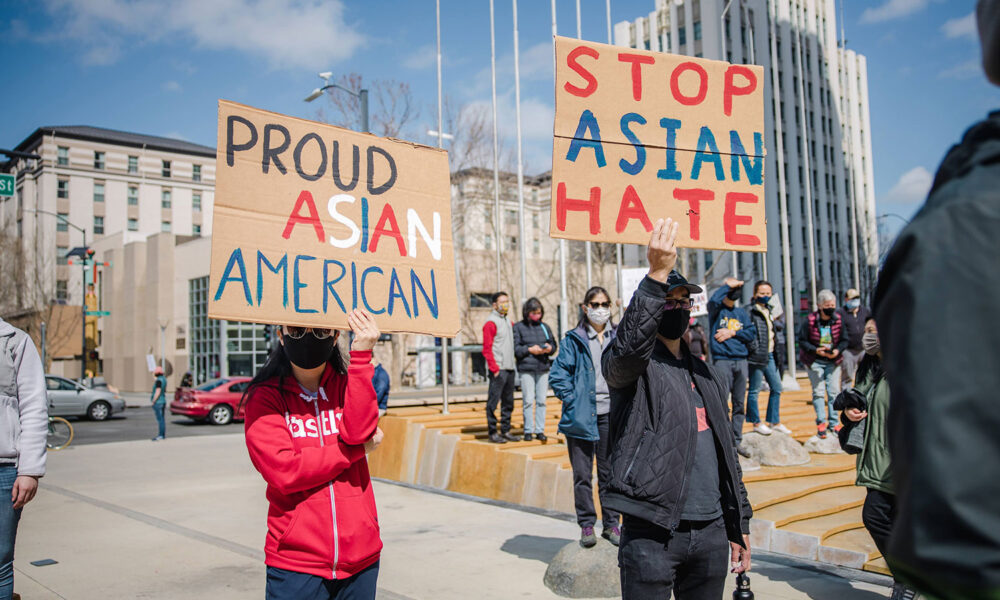Congress is struggling to pass legislation intended to improve US “competitiveness,” particularly against China, which increasing numbers of Americans view as an economic threat. Significant differences between the House and Senate versions of the bill are proving difficult to resolve.
President Biden hoped to score a quick bipartisan win when the Senate passed its version of the bill last June with 68 votes. Last week, in a pique of frustration, he told the House and Senate conferees attempting to reconcile their differences to “Pass the damn bill and send it to me.”
Congress needs to take its time. What is now being called the Bipartisan Innovation Act is a complicated 2,300 page law littered with ill-considered provisions that will do more harm than good. Among the worst are those that will increase discrimination against Asian Americans.
The new ‘Yellow Peril’
The Pew Research Center reported a third of Asian American adults “feared someone may threaten or physically attack them.” Eight out of ten Asian Americans believe violence against them is increasing. Many tie the uptick to the anti-Chinese rhetoric of US politicians competing to demonstrate how tough they are on China.
Historians Jack Tchen and Dylan Yeats documented how Chinese have been portrayed as a US national security threat since the 1880s in Yellow Peril: An Archive of Anti-Asian Fear. Contemporary US perceptions of a “China threat” took root during the mid-1990s and spread gradually during the past quarter century. Those perceptions encouraged congressional opponents of economic and scientific engagement with China to supervise and restrict trade and academic cooperation between the two countries.
The current variant of what Tchen and Yeats called “yellow perilism” is animated by fears the Chinese government is using economic and scientific cooperation to gain the upper hand in an epic struggle political scientist Samuel Huntington described as a “clash of civilizations.” The last three US administrations all embraced the idea that China is a “strategic competitor” aiming to dislodge the United States from its supposed place at the top of a global hierarchy of nations.
The domestic consequences
US government efforts to police economic and scientific engagement with China, like the FBI’s China Initiative, led to the unjust treatment of Chinese American scientists. Provisions in the Bipartisan Innovation Act would,
“enable the people of the United States, including the private sector, civil society, universities and other academic institutions, State and local legislators, and other relevant actors to identify and remain vigilant to the risks posed by undue influence of the CCP (Chinese Communist Party) in the United States” and “to implement measures to mitigate the risks.”
Implementation would become the responsibility of “the head of every Federal department and agency.” The new law would require them “to designate a senior official at the level of Under Secretary or above to coordinate the department’s or agency’s policies with respect to strategic competition with the PRC.”
What the act describes as a “whole of government” effort would encourage and legitimize discriminatory behavior in every level of government, as well as in corporations, schools, and local chambers of commerce. It is not difficult to imagine the harmful effects this would have on Chinese American businesses, civic organizations, and private lives.
It is also hard to see how this broad-based policing of every US person or activity connected to China will promote innovation. The intent seems to be to create a chilling effect that discourages any form of contact between Chinese and Americans.
Broader implications
Providing legal encouragement for government-led fearmongering is a disturbing continuation of what Tchen and Yeats describe as a broad and long-standing US “culture of political scapegoating.” Political and corporate elites hawking hostility toward China are tapping into potent prejudices with deep historical roots when they shift the blame for US economic troubles from themselves onto China and its supposed agents and enablers in the United States.
There is no question China’s communist leaders are creating serious economic and military problems the US government is compelled to address. But most people understand that scapegoating is a way of avoiding problems rather than solving them. It seems the only ones who don’t are politicians looking for an easier path to victory in their next election.
The members of Congress who are standing up to that self-destructive impulse and insisting on reviewing every provision in the Bipartisan Innovation Act deserve gratitude, not criticism. There’s no need to rush through what may be one of the most consequential pieces of legislation to get through a bitterly divided Congress in a long time.

